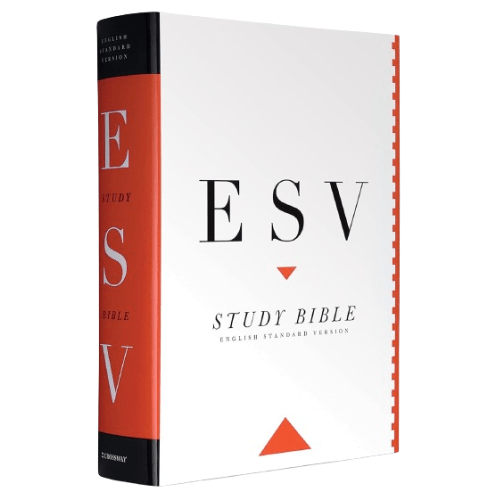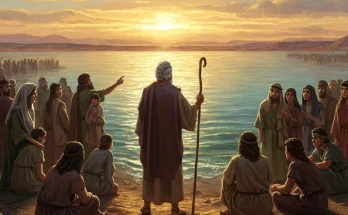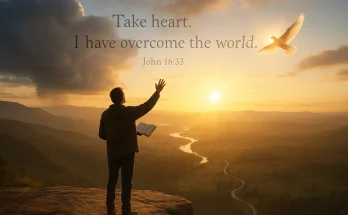Have you ever wondered what it truly means to be set free? The Book of Exodus: A Journey from Slavery to Freedom invites us on an epic adventure that has captured the hearts and minds of believers for generations. This ancient narrative is not just a story from long ago; it’s a powerful reminder of God’s unwavering faithfulness and the lengths He will go to redeem His people.
In the Book of Exodus, we see the Israelites’ dramatic transition from oppressive bondage in Egypt to the establishment of a new covenant with God. As we delve into this remarkable journey, we’ll uncover timeless lessons about faith, obedience, and the power of divine intervention. What can we learn from the Israelites’ experience, and how does it resonate with our own spiritual journey today?
Join us as we explore the Book of Exodus, unraveling its themes and uncovering the deeper meanings behind each event. Together, we’ll discover how this ancient text continues to speak to us, offering hope and inspiration in our quest for freedom and fulfillment. Let’s embark on this journey from slavery to freedom and see how the Book of Exodus can transform our lives.
Writer of the Book of Exodus
The traditional author of the Book of Exodus is Moses, a central figure in the narrative and a revered leader in Israelite history. According to both Jewish and Christian traditions, Moses wrote the first five books of the Bible, collectively known as the Torah or Pentateuch, which includes the Book of Exodus. This attribution is supported by various biblical passages where Moses is instructed to write down events and laws, such as in Exodus 17:14 and 24:4.
The authorship of Moses is significant not only because he is the central character in the Book of Exodus but also because his leadership and prophetic role lend authenticity and authority to the text. The historical context of the authorship places the writing around the 15th or 13th century BC, depending on scholarly interpretations of the Exodus event’s date.
While some modern scholars debate the single authorship of Moses, suggesting a compilation of texts over time, the traditional view holds strong in many faith communities. This perspective emphasizes Moses’ direct experience with God and the events described, providing a firsthand account of the Israelites’ journey from slavery in Egypt to freedom and the establishment of a covenant with God at Mount Sinai.
Error, group does not exist! Check your syntax! (ID: 02)Date Written
Determining the date of the Book of Exodus is a subject of scholarly debate, with two primary theories placing it in either the 15th or 13th century BC. The 15th-century date, around 1446 BC, is supported by a literal reading of 1 Kings 6:1, which states that Solomon’s temple was built 480 years after the Exodus. Subtracting this period from Solomon’s reign (circa 966 BC) places the Exodus in the mid-15th century.
Alternatively, the 13th-century date, around 1270 BC, aligns with archaeological evidence and historical records, such as the presence of the Israelites in Canaan and the geopolitical landscape of Egypt during the reigns of Pharaohs like Ramesses II. This period also fits with the destruction layers found in Canaanite cities and mentions of Israel in the Merneptah Stele (circa 1207 BC).
Dating methods for the Book of Exodus include biblical chronology, archaeological findings, and textual analysis. Each method provides insights but also presents challenges, leading to the two main proposed dates. Despite these debates, the Book of Exodus remains a foundational text, capturing the dramatic liberation of the Israelites and their covenantal relationship with God, regardless of the precise date of its composition.
To Whom Written
The Book of Exodus was originally written for the Israelites, the descendants of Abraham, Isaac, and Jacob, who had been enslaved in Egypt for centuries. Its primary purpose was to document their dramatic liberation by God through the leadership of Moses and to establish their identity as God’s chosen people. The book served as a historical record, a legal document, and a theological treatise, providing the Israelites with a sense of identity, purpose, and divine mission.
For contemporary readers, the Book of Exodus holds profound relevance. It speaks to universal themes of liberation, justice, and faith. The story of the Israelites’ journey from slavery to freedom resonates with anyone who has experienced oppression or longs for deliverance. Additionally, the laws given at Mount Sinai, including the Ten Commandments, continue to influence moral and legal systems around the world.
Exodus also offers rich theological insights into God’s nature—His power, faithfulness, and covenantal relationship with humanity. It encourages readers to trust in God’s deliverance and to live in accordance with His will. Thus, while the original audience was the Israelites, the timeless messages of the Book of Exodus extend to all who seek spiritual freedom and a deeper understanding of God’s plan for humanity.
Purpose of the Book of Exodus
The Book of Exodus serves several pivotal purposes within the biblical narrative. Its main objectives include recounting the dramatic liberation of the Israelites from Egyptian bondage, establishing the Mosaic Covenant between God and His people, and demonstrating God’s continual divine presence and guidance.
One of the central themes of the Book of Exodus is liberation. It chronicles the Israelites’ escape from slavery through God’s mighty acts, including the ten plagues and the parting of the Red Sea. This theme underscores God’s power and His commitment to justice and deliverance.
Another key theme is the covenant. At Mount Sinai, God establishes a covenant with the Israelites, giving them the Ten Commandments and other laws. This covenant not only defines the Israelites as God’s chosen people but also sets the foundation for their ethical and spiritual conduct.
The theme of divine presence is also prominent throughout Exodus. From the burning bush where Moses encounters God, to the pillars of cloud and fire guiding the Israelites, to the construction of the Tabernacle, God’s presence is a constant and reassuring force.
Overall, the Book of Exodus is not just a historical account but a profound theological work that illustrates liberation, covenant, and divine presence, offering timeless lessons for faith and obedience.
The ESV Study Bible
The ESV Study Bible was designed to help us understand the Bible in a deeper way. Created by a diverse team of 95 leading Bible scholars and teachers, from 9 countries, nearly 20 denominations, and 50 seminaries, colleges, and universities.
Historical Context of the book of Exodus
The Book of Exodus is set in ancient Egypt and the Near East, a period marked by significant socio-political dynamics. The narrative begins with the Israelites living in Egypt, where they initially enjoyed favor due to Joseph’s legacy but eventually became enslaved as their population grew and a new Pharaoh, who did not know Joseph, perceived them as a threat.
During this time, Egypt was a powerful and advanced civilization, with a highly structured society and a formidable military. The Pharaohs wielded absolute power, and their rule was marked by grand building projects, including the construction of cities and monuments, which often relied on slave labor. The Israelites’ enslavement reflects the broader socio-political climate of subjugation and oppression prevalent in ancient Near Eastern societies.
The Near East was a mosaic of emerging states and empires, with constant power struggles and shifting alliances. Egypt’s dominance in the region influenced its interactions with neighboring peoples, including the Israelites. The socio-political climate of the time was characterized by harsh labor, class divisions, and political instability.
In this context, the Book of Exodus tells the story of God’s intervention to liberate the Israelites, establish them as a nation, and guide them to a land promised to their ancestors. This historical backdrop enriches our understanding of the profound themes of liberation and divine justice central to the book.
Key Themes
The Book of Exodus is rich with key themes that resonate deeply across time, each offering profound insights into the nature of God and His relationship with humanity. Central among these themes is liberation from slavery. The narrative vividly portrays the Israelites’ harsh bondage in Egypt and their miraculous deliverance through God’s mighty acts, such as the ten plagues and the parting of the Red Sea. This theme highlights God’s power and His commitment to justice and freedom, demonstrating that He hears the cries of the oppressed and acts decisively to set them free.
Another crucial theme is the covenant and law. At Mount Sinai, God establishes a covenant with the Israelites, giving them the Ten Commandments and detailed laws that govern their social, religious, and moral life. This covenant not only defines the Israelites as God’s chosen people but also sets the foundation for their identity and ethical conduct. It underscores the importance of living in accordance with divine will and maintaining a relationship based on mutual commitments.
The divine presence and guidance theme permeates the Book of Exodus. From the burning bush where Moses encounters God, to the pillars of cloud and fire that guide the Israelites, and the detailed instructions for building the Tabernacle, God’s presence is a constant and reassuring force. This theme emphasizes that God is not distant but intimately involved in the lives of His people, guiding, protecting, and dwelling among them.
Finally, the themes of faith and obedience are woven throughout the book. The Israelites’ journey is marked by challenges that test their faith and require obedience to God’s commands. Whether it’s following the instructions for the Passover, trusting God for daily manna, or adhering to the laws given at Sinai, the narrative underscores that faith and obedience are crucial for experiencing God’s blessings and fulfilling His purposes.
The Book of Exodus is a profound narrative that explores themes of liberation, covenant, divine presence, and the essential nature of faith and obedience, offering timeless lessons that continue to inspire and guide believers today.
Major Events/Stories
The Book of Exodus is a dramatic and foundational text in the Bible, brimming with major events and stories that shape the faith and identity of the Israelites. It begins with the oppression of the Israelites in Egypt, where they endure harsh slavery under a new Pharaoh who fears their growing numbers. This sets the stage for their desperate cries for deliverance.
The narrative then introduces the birth and calling of Moses, a pivotal figure chosen by God to lead His people out of bondage. Moses’ early life, his flight to Midian, and his encounter with God at the burning bush highlight themes of divine election and preparation.
A series of dramatic episodes follows with the Ten Plagues, where God demonstrates His sovereignty over Egypt and its gods. Each plague intensifies the pressure on Pharaoh until he finally agrees to let the Israelites go. The Passover, instituted during the last plague, becomes a lasting symbol of God’s protection and deliverance.
The Exodus from Egypt culminates in the miraculous crossing of the Red Sea, where God parts the waters to allow the Israelites to escape, then closes them to thwart the pursuing Egyptian army. This event is a powerful testament to God’s saving power.
At Mount Sinai, the Israelites receive the Ten Commandments, establishing the moral and legal framework for their community. This covenantal moment underscores the relationship between God and His people, grounded in divine law and mutual commitment.
The construction of the Tabernacle is another significant event, symbolizing God’s desire to dwell among His people. Detailed instructions and careful execution of this portable sanctuary reflect the importance of worship and divine presence.
The Book of Exodus offers profound theological contributions, emphasizing God’s sovereignty, faithfulness, and the establishment of the Mosaic Covenant. The introduction of the law is significant, as it not only guides the Israelites in their daily lives but also sets them apart as a holy nation. These elements together underscore the themes of liberation, covenant, divine presence, and the importance of faith and obedience, making the Book of Exodus a cornerstone of biblical theology and narrative.
Structure and Outline
The Book of Exodus is structured into four major sections: the oppression in Egypt, the journey to Sinai, the covenant at Sinai, and the construction of the Tabernacle. Each section contributes to the overarching narrative of liberation, covenant, and divine presence.
1. Oppression in Egypt (Chapters 1-12)
This section begins with the Israelites’ rapid population growth in Egypt and their ensuing oppression by a new Pharaoh who fears their potential power. The narrative highlights the severe conditions of slavery and Pharaoh’s decree to kill Hebrew male infants. The birth of Moses and his divine calling at the burning bush marks a turning point. God commissions Moses to confront Pharaoh and demand the release of the Israelites. The Ten Plagues, culminating in the death of the firstborn, demonstrate God’s supremacy over Egyptian gods and compel Pharaoh to release the Israelites. The institution of the Passover is a significant event here, symbolizing divine protection and deliverance.
2. Journey to Sinai (Chapters 13-18)
This section details the initial stages of the Israelites’ journey from Egypt to Mount Sinai. Key events include the miraculous crossing of the Red Sea, where God parts the waters to allow safe passage and then destroys the pursuing Egyptian army. The Israelites celebrate their deliverance with songs of praise. However, the journey is fraught with challenges, such as lack of food and water. God provides manna, quail, and water from a rock, demonstrating His provision and care. The arrival at Mount Sinai marks the end of this section.
3. Covenant at Sinai (Chapters 19-24)
At Mount Sinai, God establishes a covenant with the Israelites, forming the core of their identity as His chosen people. This section includes the giving of the Ten Commandments and other laws that govern various aspects of Israelite life. The covenant ceremony involves the people affirming their commitment to obey God’s laws. This section emphasizes the importance of obedience and the foundational role of the law in Israel’s relationship with God.
4. Construction of the Tabernacle (Chapters 25-40)
The final section focuses on the instructions for building the Tabernacle, a portable sanctuary symbolizing God’s presence among His people. Detailed descriptions of the Tabernacle’s design, furnishings, and the priestly garments highlight the importance of holiness and worship. The narrative concludes with the completion of the Tabernacle and God’s glory filling it, signifying His dwelling with the Israelites.
The structure of the Book of Exodus, divided into oppression in Egypt, journey to Sinai, covenant at Sinai, and construction of the Tabernacle, provides a coherent and comprehensive account of the Israelites’ transformation from slaves to a covenant people with a divine purpose and presence. Each section builds on the previous one, weaving together themes of liberation, law, and worship.
Special Consideration
The Book of Exodus offers a rich tapestry of literary styles, symbolism, and interpretative challenges that invite deep reflection and study.
Literary Style and Features:
The Book of Exodus employs various literary styles, including narrative, poetry, and legal discourse. The narrative sections, particularly the accounts of the plagues and the Red Sea crossing, are vivid and dramatic, designed to capture the reader’s imagination and convey the grandeur of God’s actions. Poetry, such as the Song of the Sea in Exodus 15, celebrates God’s triumph and deliverance in a lyrical form. The legal sections, notably the Ten Commandments and subsequent laws, are precise and structured, reflecting the importance of order and covenant in Israelite society.
Symbolism and Typology:
Symbolism and typology play crucial roles in the Book of Exodus. The plagues symbolize God’s judgment against Egypt’s gods, demonstrating His sovereignty. The Passover lamb is a significant type, prefiguring Christ as the ultimate sacrificial lamb in Christian theology. The Red Sea crossing symbolizes baptism and spiritual liberation. The Tabernacle, with its intricate design and furnishings, symbolizes God’s holiness and His desire to dwell among His people, prefiguring the concept of Emmanuel, “God with us.“
Interpretative Challenges and Debates:
The Book of Exodus presents several interpretative challenges and debates. One major debate concerns the historicity of the Exodus event. While some scholars argue for its historical basis supported by archaeological findings, others view it as a theological construct rather than a literal historical account. The dating of the Exodus, whether in the 15th or 13th century BC, also remains a topic of scholarly contention.
Additionally, the depiction of divine hardening of Pharaoh’s heart raises questions about free will and divine sovereignty. The ethical implications of the plagues and the destruction of the Egyptian army also provoke discussion about God’s justice and mercy.
The Book of Exodus is a complex work that combines narrative, law, and poetry, enriched with deep symbolism and typology. Its interpretative challenges and debates continue to engage scholars and believers, offering profound insights into God’s nature and His relationship with humanity.
Book of Exodus Conclusion
The Book of Exodus stands as a cornerstone of biblical literature, rich with profound themes and enduring lessons. We have explored its key sections: the oppression in Egypt, the journey to Sinai, the covenant at Sinai, and the construction of the Tabernacle. Each segment reveals God’s mighty acts of liberation, the establishment of His covenant, and His enduring presence among His people.
We’ve delved into the literary styles that bring the narrative to life, the deep symbolism and typology that connect Old and New Testament truths, and the interpretative challenges that provoke thoughtful discussion and deeper understanding. The Book of Exodus is not just an ancient story; it is a timeless narrative that speaks powerfully to issues of freedom, faith, law, and divine guidance.
For modern readers, the Book of Exodus offers invaluable insights into God’s character and His plan for humanity. It calls us to remember that, just as God delivered the Israelites from bondage, He offers spiritual freedom to us today. The covenant at Sinai and the construction of the Tabernacle remind us of the importance of living in a relationship with God and maintaining a life of worship and obedience.
As we reflect on these themes, let us commit to continuing our study of the Bible. The Book of Exodus encourages us to seek deeper understanding and to draw closer to God through His Word. Let this exploration be a starting point for further study and reflection, inviting us to discover more of the divine truths that can transform our lives.
Dive deeper into the Book of Exodus and the broader biblical narrative. Let the journey from slavery to freedom inspire you to experience and share the liberation and hope found in God’s Word.
Error, group does not exist! Check your syntax! (ID: 02)Frequently Asked Questions
What is the main message of the Book of Exodus? The main message of the Book of Exodus is God’s power to liberate, His establishment of a covenant with His people, and His desire to dwell among them. It underscores themes of freedom, law, faith, and divine presence.
Why did God harden Pharaoh’s heart? The hardening of Pharaoh’s heart demonstrates God’s sovereignty and serves to display His power and glory. It also emphasizes the consequences of persistent resistance to God’s will, highlighting the importance of obedience and humility.
What is the significance of the Ten Commandments? The Ten Commandments form the core of God’s covenant with the Israelites, providing a moral and legal framework for their community. They emphasize principles of worship, justice, and social responsibility, remaining relevant as foundational ethical guidelines.
How should we understand the miracles in the Book of Exodus? The miracles in the Book of Exodus, such as the plagues and the parting of the Red Sea, showcase God’s intervention in history to save and protect His people. They symbolize His omnipotence and serve as signs of His covenantal promises and divine care.
What is the relevance of the Book of Exodus for contemporary readers? The Book of Exodus offers timeless lessons on liberation from oppression, the importance of covenant and law, and the continuous presence of God in the lives of His people. Its themes encourage modern readers to seek spiritual freedom, live righteously, and remain faithful to God’s guidance.




